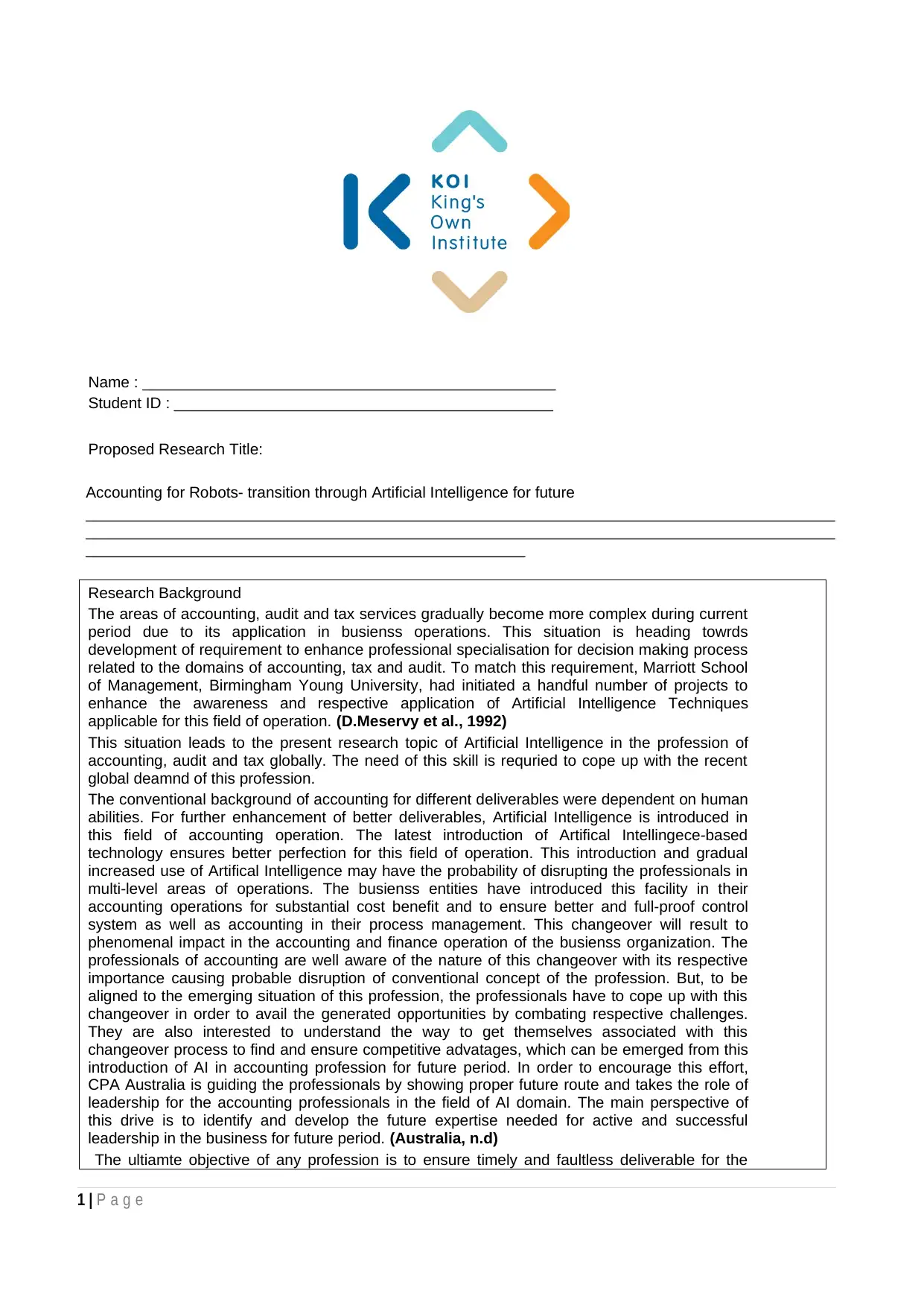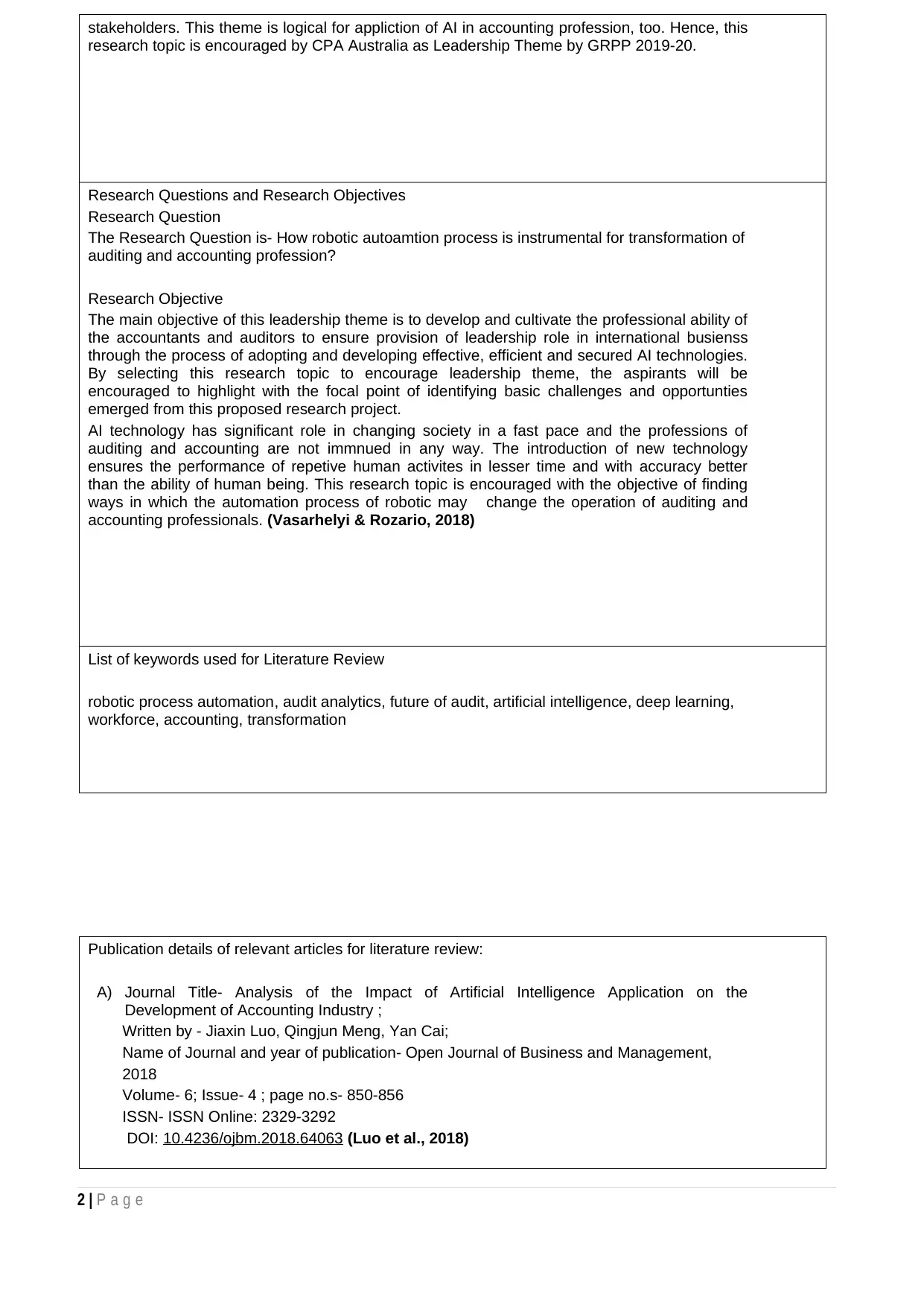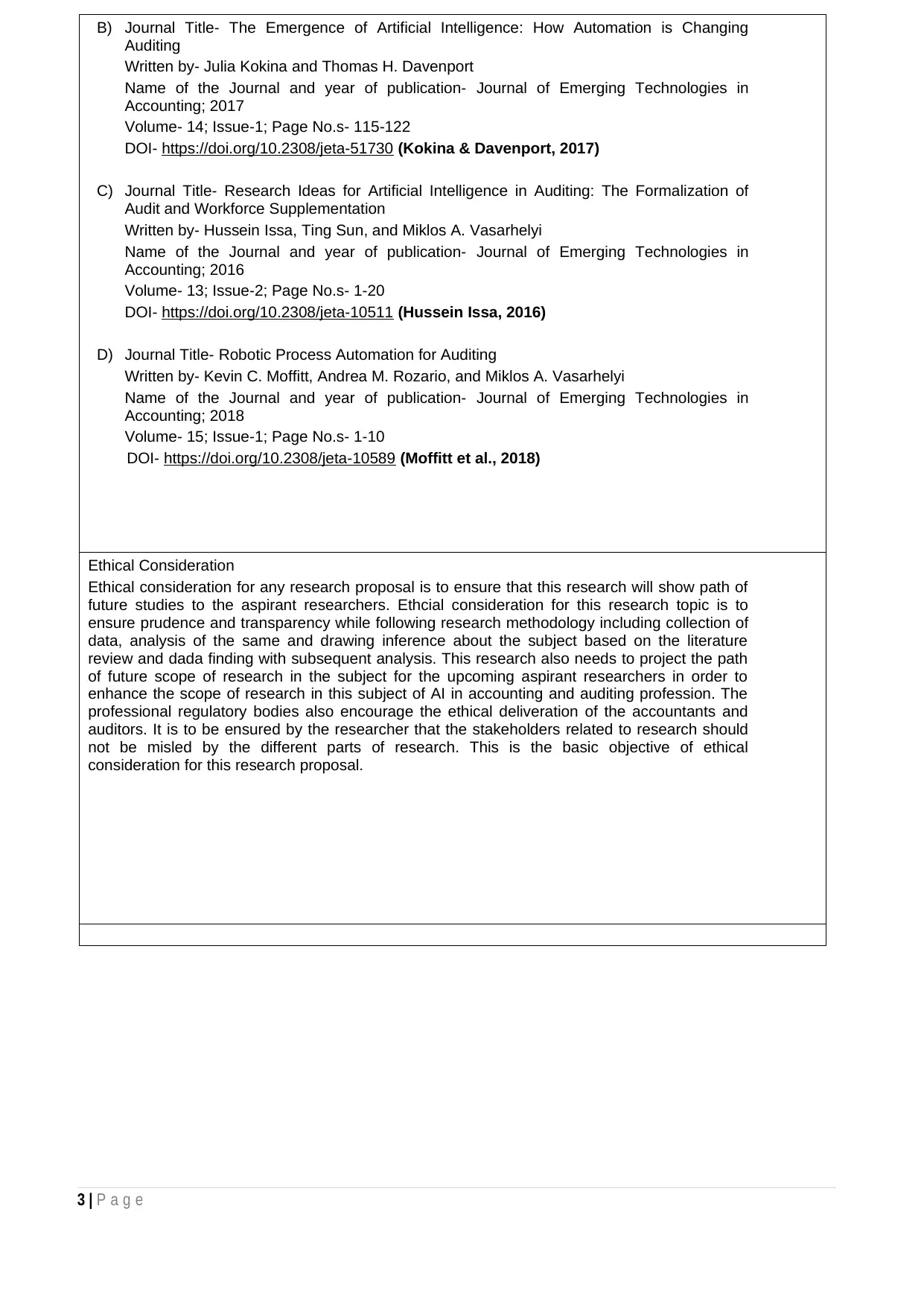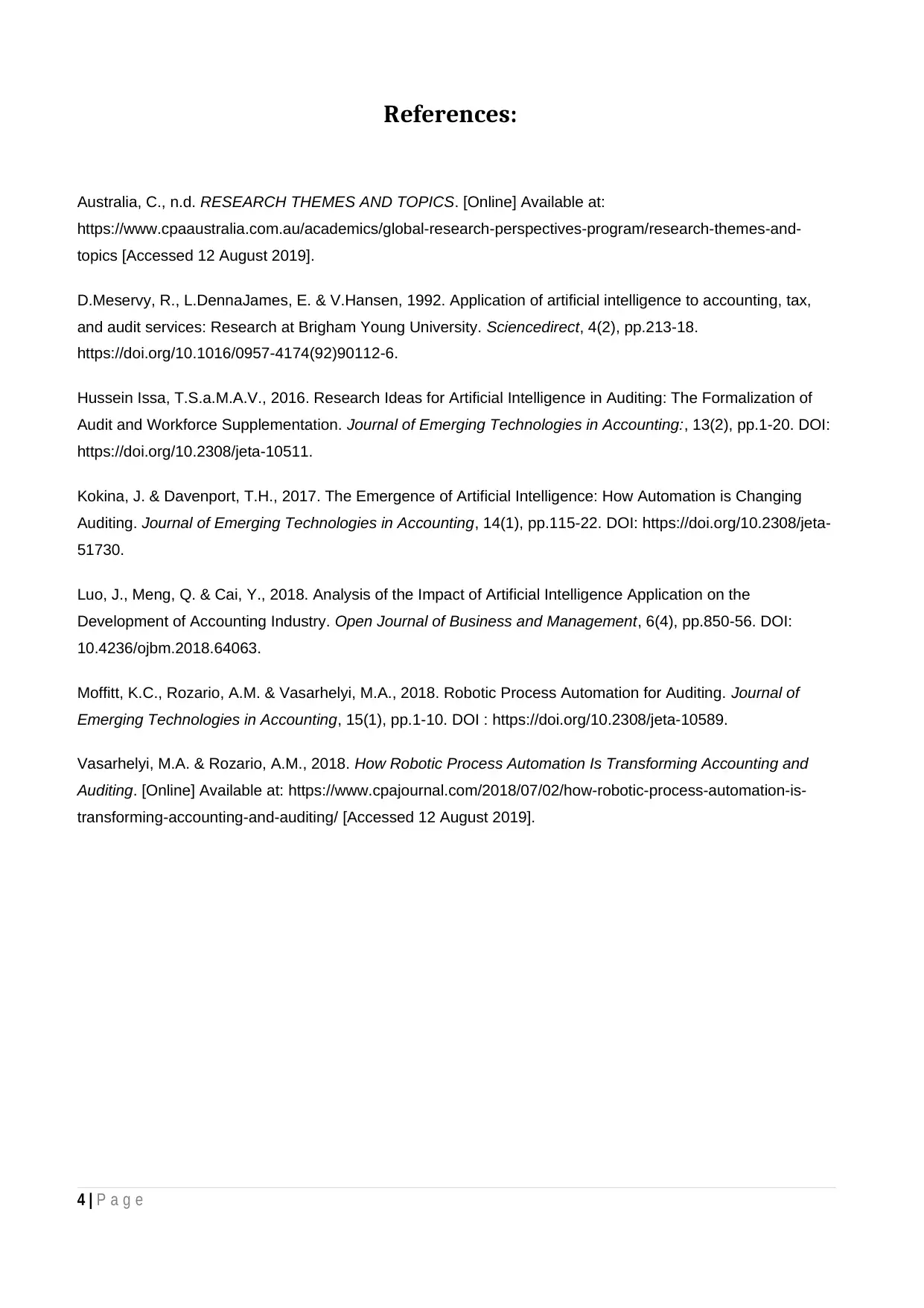Accounting for Robots: AI and the Future of Auditing Profession
VerifiedAdded on 2022/10/02
|4
|1422
|17
Project
AI Summary
This research proposal explores the transformative impact of Artificial Intelligence (AI) on the accounting and auditing professions. The study investigates how robotic process automation (RPA) and other AI technologies are reshaping traditional practices, potentially leading to enhanced efficiency, accuracy, and cost-effectiveness. The research delves into the background of AI applications in accounting, highlighting the increasing complexity of the field and the need for enhanced professional specialization. It examines the research question of how robotic automation transforms auditing and accounting, with the objective of cultivating accountants' and auditors' ability to provide leadership in the international business landscape through the adoption and development of effective AI technologies. The proposal outlines the research objectives, identifies relevant keywords for literature review, and provides publication details of key articles. It also addresses ethical considerations, emphasizing the importance of transparency and the avoidance of misleading stakeholders. The research is encouraged by CPA Australia as a leadership theme, aiming to identify challenges and opportunities associated with AI implementation in accounting and auditing. The proposal draws upon existing literature to analyze the impact of AI on the accounting industry, automation's influence on auditing, and the potential for workforce supplementation. This research aims to provide a roadmap for future research and practical guidance for accounting professionals navigating the AI-driven transformation.
1 out of 4







![[object Object]](/_next/static/media/star-bottom.7253800d.svg)